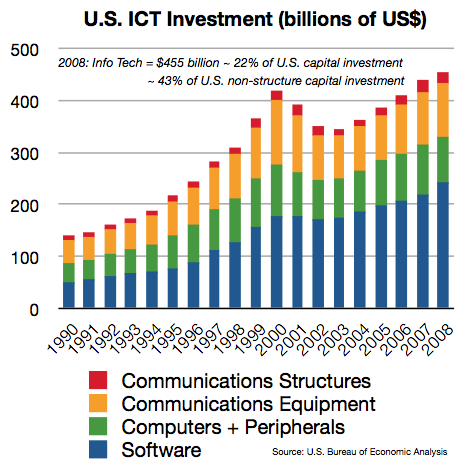In testimony before Congress’s Joint Economic Committee today, Fed chairman Ben Bernanke noted that
In contrast to the somewhat better news in the household sector, the available indicators of business investment remain extremely weak.
But it is these key business sectors that are most important for a U.S. — and global — economic recovery. As important as stabilization of the housing sector is, we are not going to be led out of the recession by another housing boom. Nor should we desire that. We need real productivity-enhancing innovation, which is largely enabled by non-real estate investment and entrepreneurship.
Among the myriad policy actions being taken in Washington this year is a potential overhaul of our communications strategy, under the aegis of the FCC’s new Broadband “Notice of Inquiry.” The first goal of this plan should be to to encourage the continued investment in leading-edge information technologies. Broadband communications especially makes all our businesses in every sector more productive and also connects an ever larger number of citizens, especially those who may be struggling the most in this tough economy, to the wider world, improving their prospects for education, health, and new jobs in emerging industries.
Information and communications technology (ICT) accounts for an astounding 43% of non-structure U.S. capital investment, totaling $455 billion 2008. In this new FCC communications policy review, we should do everything possible to keep this huge source of American growth rolling. Any policy obstacles thrown into the path of our information industries would not only reduce this crucial component of absolute capital investment, which is already under strain, but also diminish and delay all the positive cascading follow-on effects of a more networked workforce and world.
